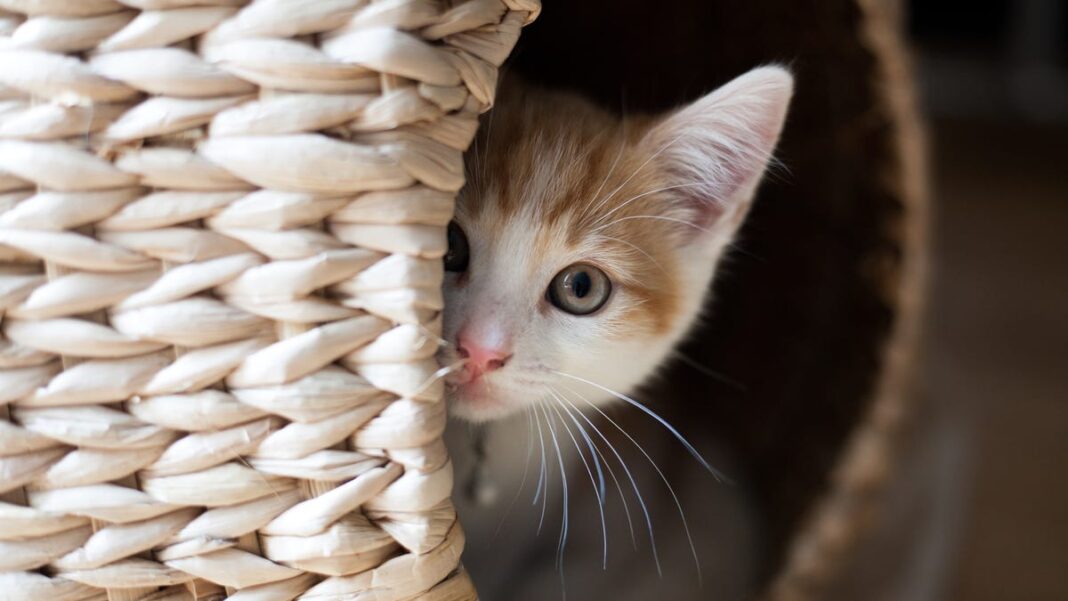Why Cats Meow: Understanding Your Feline Friend’s Vocalizations
Curious about what your cat’s meowing means? This isn’t a reference to the 2001 movie with Kirsten Dunst. The English language has numerous expressions like “the cat’s pajamas” and “the cat’s meow,” which imply something delightful.
However, cat owners are well aware that those pleasant meows can sometimes turn into a nuisance. Persistent yowling can be tough on owners and may raise concerns about their cat’s health.
So, how can you distinguish between normal and worrisome meowing? Here’s what to understand about your feline friend’s vocalizations:
What Do Cats Mean When They Meow?
Cats use meowing to express their desires and needs. Most commonly, they meow to greet humans, get attention, request food, or ask to be let in or out, according to the American Society for the Prevention of Cruelty to Animals (ASPCA).
Interestingly, cats vocalize mainly to communicate with their human companions and not with other cats. This behavior helps them secure the attention they need. Feral cats are mostly quiet, with vocalizations occurring predominantly between mothers and their kittens or during moments of agitation. House cats are capable of recognizing individual human voices, as noted in a Journal of Veterinary Science review.
According to the Humane Society, domesticated cats have various vocalizations for different needs:
- Meowing: A friendly greeting, a command, an objection, or a notification
- Chirping and trilling: Usually a request for companionship, like a mother leading her kittens or guiding owners to a food bowl
- Purring: Indicates contentment, but can also be a self-soothing mechanism when they’re anxious or unwell
- Growling, hissing, or spitting: These sounds indicate a cat that is defensive, annoyed, frightened, angry, or aggressive
- Yowling: Prolonged meows that are often distress signals, but can also relate to mating behaviors in unspayed cats
- Chattering or twittering: Displays excitement, often while observing birds or squirrels
To understand your cat’s feelings, observe their vocalizations alongside their body language. Unlike humans, cats don’t show emotions on their faces but instead rely on gestures. A relaxed cat may lie on their side, showing their belly, with a loosely positioned tail. They might produce a “solicitation purr,” a sound designed to prompt their owners to provide food or affection.
A tightly wrapped tail or bared teeth suggest that your cat is feeling stressed or threatened, according to feline behavior expert Marci Koski.
Why Is My Cat Crying?
If your cat is crying out, known as “yowling,” it may indicate fear or distress.
However, cats do not cry in the same emotional way humans do. If you notice tears in your cat’s eyes, this condition is referred to as “epiphora,” which means that their eyes are either producing excessive tears or not draining properly. This issue can arise from several factors:
- Obstruction of the nasolacrimal duct
- Breed characteristics, like brachycephalic (flat-faced) breeds
- Eye infections
- Allergies
- Injuries to the eye
- Corneal ulcers
- Irregular eyelash growth
- Problems with eyelids (inward or outward rolling)
- Glaucoma
- Tumors
Should you find your cat with watery eyes, it’s advisable to consult a veterinarian to rule out any serious conditions.
How to Curb Excessive Meowing
Nevertheless, loud meowing can annoy owners and may indicate underlying health issues. Below are common reasons for excessive meowing and how to approach them:
- Seeking attention: It’s vital to pay attention to your cat’s cries and determine if something might be wrong, but if it’s simply for attention, try ignoring them briefly before engaging.
- Loneliness: Consider arranging for a pet sitter to interact with your cat during the day.
- Asking for food: Feed your cat at designated times instead of in response to their meows, or use an automatic feeder.
- Requesting to go outside: Think about keeping your cat indoors exclusively or installing a cat door for them to go out as they wish.
- In heat: If your unspayed female is excessively meowing during breeding season (February through September), spaying might be a sensible option.
Avoid scolding or punishing your cat for meowing, as per the ASPCA’s guidance. This approach can instill fear in your cat without effectively reducing their vocalization.

